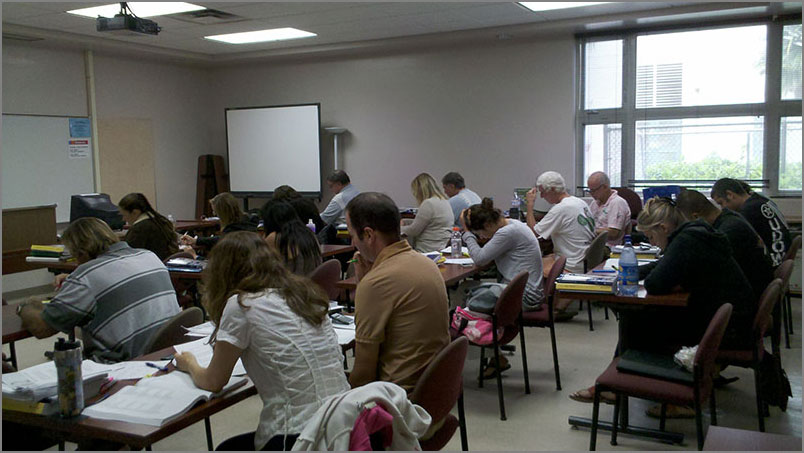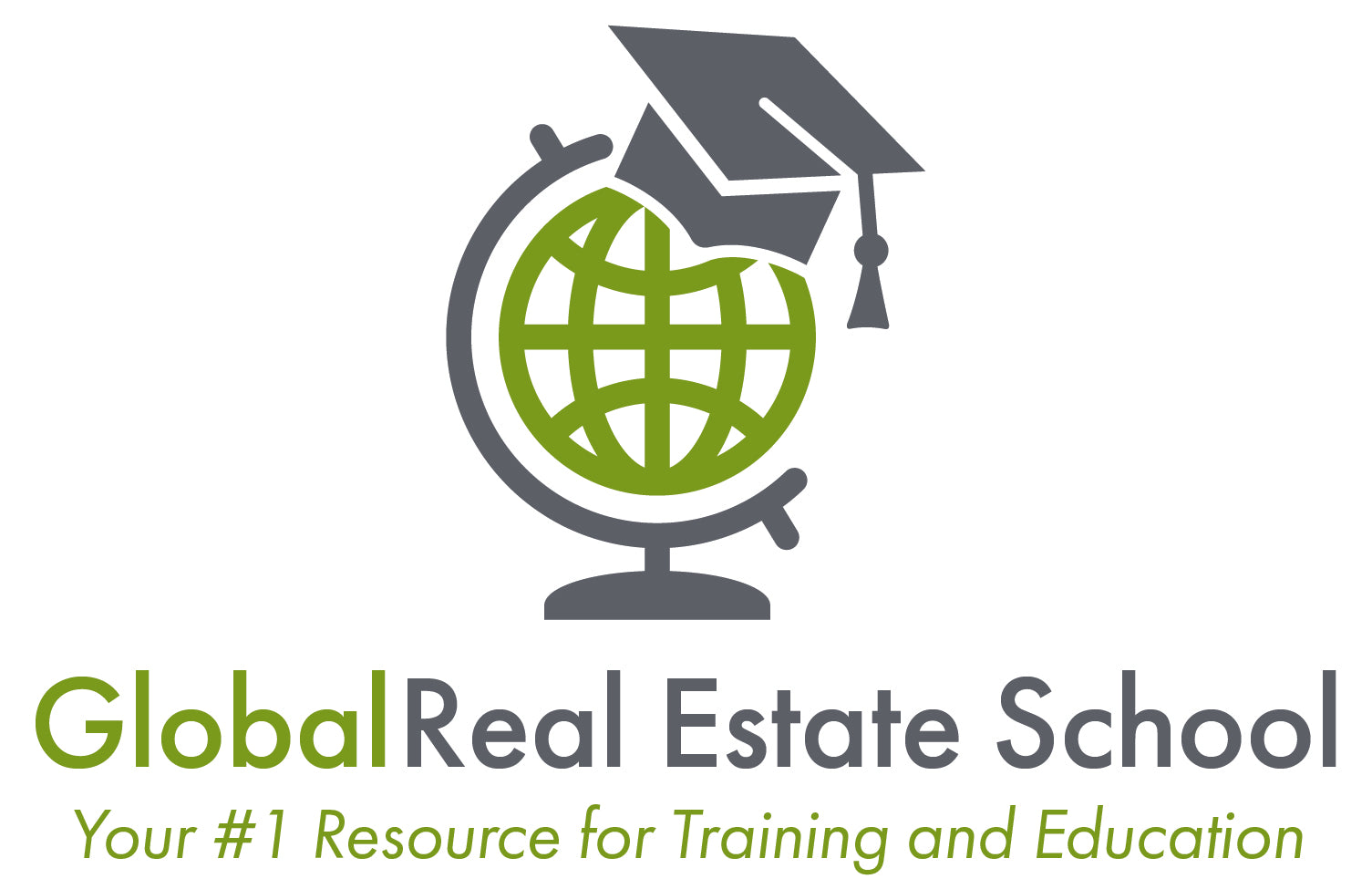How a Real Estate School Helps You Master Market Trends
What Courses Are Available at a Real Estate Institution? A Full Overview for Aspiring Representatives
Aspiring real estate representatives have a varied selection naturally readily available to enhance their knowledge and abilities. These offerings range from fundamental classes in genuine estate concepts to specialized training in areas like home monitoring and commercial realty. Comprehending the various educational paths can be important for success. What essential subjects and techniques will these training courses cover, and exactly how might they shape a representative's profession?
Comprehending the Essentials: Realty Principles
The structure of actual estate understanding exists in understanding its principles. These concepts encompass essential principles that regulate the purchasing, marketing, and administration of properties. Secret topics include property ownership, land use, and the numerous civil liberties connected with ownership. Recognizing the distinctions between household, business, and commercial properties is vital, as each category has one-of-a-kind market characteristics.
In addition, students discover market analysis, which involves examining building worths and patterns to make educated choices (Real Estate School). Realty principles additionally cover the value of contracts and the lawful structure that supports property purchases. Knowledge with funding choices, such as lendings and mortgages, is vital for leading the monetary aspects of property. On the whole, a solid understanding of these concepts gears up ambitious representatives with the fundamental knowledge essential to prosper in the affordable property market, leading the way for additional specialized training and licensing

Licensing Demands and Test Prep Work
Hopeful property representatives must navigate particular licensing needs to exercise legally in their particular states. These needs commonly consist of completing a designated variety of hours in pre-licensing education, which covers vital subjects such as property law, values, and home monitoring. Prospects must also pass a state evaluation that assesses their expertise and understanding of these subjects.
Examination prep work is vital for success. Many property institutions use examination prep programs that offer method questions, study overviews, and review sessions. These resources help prospects familiarize themselves with the exam style and content. Additionally, signing up with study teams or utilizing on-line systems can boost finding out via collaborative testimonial and conversation.
Once the test is passed, representatives have to apply for their certificate with the state's property compensation, usually gone along with by history checks and charges. Fulfilling these licensing needs guarantees that representatives are equipped to serve clients successfully and fairly in the genuine estate market.
Specialized Courses: Home Administration
Understanding the intricacies of residential property monitoring is necessary genuine estate specialists seeking to improve their expertise in this specific field. Home administration programs provide agents with important insights right into the everyday operations of handling business and residential homes. These courses commonly cover key topics such as tenant connections, lease agreements, and residential or commercial property upkeep.
Additionally, aiming property supervisors learn more about financial monitoring, including budgeting and rent collection techniques, as well as legal obligations associated with tenant rights and residential property guidelines.
Programs may additionally explore marketing methods for attracting lessees and tools for home administration software program that simplify procedures. By finishing specialized property administration programs, property experts can better furnish themselves to manage the obstacles of handling homes properly, eventually leading to boosted client fulfillment and company growth. This understanding is important for those aiming to master the competitive property market.
Industrial Property: A Different Viewpoint
Industrial property runs under special market characteristics that differentiate it from properties. Recognizing investment strategies details to this industry is vital for success, as is acknowledging the significance of networking opportunities readily available to professionals. These elements with each other shape an all-inclusive technique to passing through the complexities of business property.
Special Market Dynamics

Financial Investment Techniques Explained
Numerous financial investment techniques exist within the domain name of industrial property, each customized to fulfill certain financial objectives and market problems. One typical method is value-add investing, where investors acquire underperforming residential properties, enhance their worth via restorations, and ultimately increase rental revenue. An additional strategy is core investing, concentrating on maintained, high-grade properties in prime places that offer steady capital. In addition, opportunistic investing includes greater risk, targeting residential or commercial properties requiring significant redevelopment or in arising markets. Property investment company (REITs) offer a much more easy method, enabling people to buy a varied profile of commercial residential or commercial properties. Ultimately, crowdfunding platforms have actually emerged, making it possible for tiny financiers to engage in larger business deals, equalizing access to the industrial property market.
Networking Opportunities Available
In the domain of actual estate investing, building a robust expert network can significantly boost opportunities for success. Networking chances abound at real estate institutions, where aspiring representatives can attach with industry specialists, trainers, and fellow pupils. Workshops, seminars, and guest talks often include knowledgeable agents and brokers who share insights and experiences, supplying important contacts. Many institutions likewise assist in regional meetups and networking events, motivating trainees to engage with the broader real estate community. Furthermore, on the internet platforms and online forums connected with these programs enable for ongoing communication and collaboration. By leveraging these opportunities, students can promote connections that might bring about mentorship, collaborations, and potential job placements, eventually helping in their specialist development within the competitive industrial property industry.

Realty Investment Strategies
Property financial investment strategies vary substantially, including approaches such as rental property investments, flipping homes, and engaging with Realty Investment Trust Funds (REITs) Each technique offers distinct opportunities and threats that capitalists have to meticulously take into consideration. Understanding these options is crucial for anybody looking to develop an effective property portfolio.
Rental Residential Or Commercial Property Investments
Several investors discover rental residential property investments to be a compelling technique for developing wide range and generating easy revenue. This approach involves buying commercial or domestic residential properties to rent to tenants, guaranteeing a consistent cash money circulation. Effective rental property investments require detailed market research, examining building values, and comprehending neighborhood rental demand. Financiers often take advantage of tax obligation advantages, such as devaluation and home loan interest deductions. In addition, home management abilities are vital for preserving renter partnerships and making certain timely rent collection. Long-lasting gratitude of property worths can better boost an investor's portfolio. Overall, rental building investments can provide a secure resource of income and add to economic safety, making them from this source an appealing option for several in the property market.
Turning Residences Methods
Flipping residences has become a preferred method for real estate investors looking for fast returns on their investments. This technique entails purchasing underestimated properties, making needed restorations, and selling them at a greater price. Effective home flippers normally conduct comprehensive marketing research to recognize promising areas and residential or commercial properties with possibility for recognition. They usually focus on cosmetic upgrades, such as kitchen and washroom remodels, to boost allure without spending beyond your means - Real Estate School. Furthermore, understanding funding choices and taking care of budgets are crucial for making the most of earnings. Time is important in this technique, as prolonged improvements can wear down profit margins. Ultimately, flipping residences needs a mix of market understanding, remodelling abilities, and economic acumen to be effective in a competitive genuine estate landscape
REITs and Diversification
Straight residential or commercial property investment can generate high returns, Real Estate Financial Investment Trust Funds (REITs) supply an engaging alternative that permits investors to diversify their portfolios without the intricacies of managing physical homes. REITs are companies that own, run, or money income-producing property across numerous markets, including domestic, industrial, and industrial buildings. By investing in REITs, individuals can gain exposure to property markets without the demand for substantial capital or direct monitoring duties. This financial investment vehicle also provides liquidity, as shares can be easily purchased and marketed on supply exchanges. Furthermore, REITs frequently pay dividends, supplying a normal revenue stream. Generally, including REITs right into a portfolio can enhance diversification and mitigate threats connected with conventional home financial investments.
Proceeding Education And Learning and Expert Development
As the property sector evolves, specialists should take part in continuing education and expert development to stay affordable and informed. This continuous knowing is essential for adapting to adjustments in regulations, innovation, and market fads. Realty colleges offer different training courses developed to improve abilities and understanding, consisting of advanced settlement strategies, building management, and advertising and marketing techniques.
Several states call for accredited representatives to complete a collection number of proceeding education hours to keep their licenses. These programs often cover essential topics such as values, fair housing regulations, and danger administration.
Furthermore, sector workshops and workshops provide networking chances, permitting representatives to attach with peers and industry leaders. By participating in these academic programs, property experts can ensure they continue to be competent and responsive to client requirements, ultimately leading to job development and success in a dynamic market.
Often Asked Questions
What Is the Common Duration of Real Estate Courses?
The typical period of actual estate training courses differs, normally ranging from a few weeks to several months. Elements influencing this duration include program content, shipment technique, and state requirements, impacting ambitious representatives' academic timelines.
Are Online Courses Available for Real Estate Education And Learning?
Yes, many on the internet courses are readily available for actual estate education and learning. These programs supply versatility and availability, enabling people to find out at their own speed while covering essential topics needed for obtaining property licenses and knowledge.
Exactly How Much Do Genuine Estate Courses Generally Price?
Realty training courses normally range from $200 to $1,500, relying on the establishment and training course length. Extra costs for materials, exams, and state a fantastic read licensing may also apply, adding to the general price of education.
Can I Take Property Courses Part-Time?
Yes, individuals can take actual estate courses part-time. Many schools use adaptable scheduling choices, permitting ambitious agents to balance their research studies with other commitments, making it easily accessible for those with active lifestyles.
What Professions Can I Seek After Finishing Real Estate Courses?

These offerings vary from foundational classes in genuine estate principles to specialized training in areas like residential property management and business genuine estate. Real estate concepts also cover the value of agreements and the legal framework that sustains real estate purchases. While several real estate professionals focus on residential markets, the characteristics of industrial real estate existing special difficulties and chances that require a various technique. Genuine estate investment approaches vary he has a good point substantially, including approaches such as rental property financial investments, flipping residences, and engaging with Real Estate Financial Investment Depends On (REITs) Direct home investment can yield high returns, Real Estate Financial Investment Trust Funds (REITs) use an engaging option that permits financiers to expand their portfolios without the intricacies of managing physical residential properties.